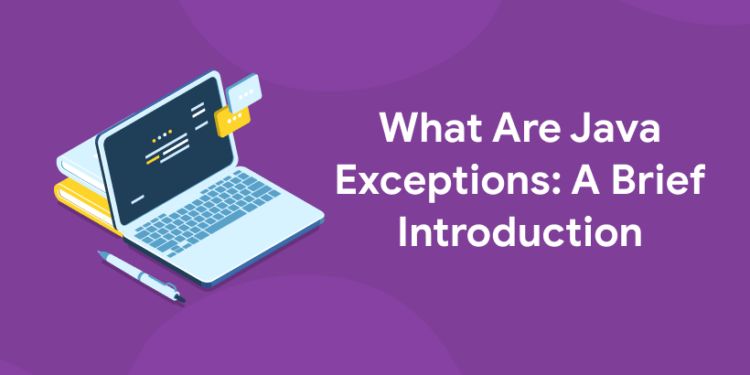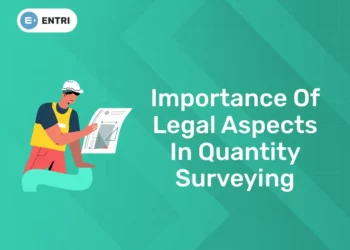Table of Contents
If you have any experience with programming in Java, you’ve likely seen an exception or two before. Exceptions are used in many popular programming languages, including Java, to help the programmer identify and fix errors in the code. But what are exceptions exactly? And how do they work? If you’re looking to learn more about what Java exceptions are and how they can benefit your coding skills, check out this article on exceptions in Java. You’ll find everything from the basics of what an exception is to how you can take advantage of them to make your own code more stable and efficient. Java exceptions are runtime errors, and they’re more common than you might think. In fact, Java exceptions occur so often that many developers have learned to shrug them off as a thing that happens sometimes. But what are Java exceptions, exactly? And why do they happen so often? Let’s take a look at some answers to these questions and learn why it’s important to understand Java exceptions in depth. Java exceptions are thrown by the JVM when something goes wrong in the code you write, or when something unexpected happens that isn’t covered by your try/catch blocks. This article will cover how to best handle exceptions and what you can do to avoid them in the first place. If you’re new to Java, we’ll also take a high-level look at what Java exception handling entails and what makes it different from other languages such as C++ and Python.
A Brief Introduction to Java Exceptions
What Are Exceptions?
So, you’ve written some code and it just doesn’t seem to be doing what you want. And then, boom! Something bad happens in your code and suddenly everything stops working as expected. This is known as an exception — a condition that occurs during the execution of a program where normal processing cannot continue — a runtime error if you will. In programming, exceptions are essentially errors or conditions that cause software programs or computer hardware devices to behave unexpectedly or fail completely. There are several different types of exceptions that can occur when running applications made with Java. The first type of exception is known as a run-time exception. These exceptions can happen at any time while an application is running, but they do not always result in an error message appearing on the screen. Some examples include: dividing by zero (which results in infinity), attempting to access data outside of a range (such as trying to read beyond the end of a file), or accessing memory that has already been freed up for use by other parts of your application. The second type of exception is called a compile-time exception because these errors only appear when compiling code; they do not show up while executing programs once they have been compiled and run through testing.
When Are They Thrown?
An exception is a fancy name for an error, crash, failure, or other mishap that occurs while a program is running. It’s an interruption in normal program flow due to something unusual and not easily recovered from occurring. For example, division by zero and illegal memory access are exceptions. These things aren’t supposed to happen under normal circumstances; when they do happen, bad things can happen as well – such as stopping the execution of your program. The standard java API has eight exceptions it throws: IndexOutOfBoundsException, NullPointerException, NoSuchMethodException, SecurityException, IllegalArgumentException, IllegalStateException, RuntimeException and StackOverflowError. In addition, you may create your own custom exceptions which can be thrown using a throw statement. This tells other programmers (and yourself) that something unexpected happened and you need to take some action to recover from it. In many cases, handling these exceptions requires less code than attempting recovery after catching them with try-catch blocks or throwing new custom exception objects. To understand how exactly exceptions work in java we will cover them in detail below!
How Can We Handle Them?
When your code encounters a situation it doesn’t expect, like a NullPointerException, it stops and prints out an error message. Errors that happen at runtime are called exceptions because they prevent code from running as expected. If you didn’t handle errors in your code, they would bring down your entire program—or worse! Understanding how exceptions work and knowing how to create effective exception-handling strategies is an important part of being a good programmer. This tutorial will cover everything you need to know about handling Java exceptions correctly so you can avoid these pitfalls. Let’s get started! Why do we care? When your application runs, it executes lines of code one by one. It follows a specific order (called flow control) until it gets to a line that tells it something unexpected happened or if there was nothing else for it to do, stopping when it’s finished (called termination). Whenever something unexpected happens during execution flow breaks and error occurs (exception). Exception handlers are built into all programming languages – even ones without exceptions – but their scope has widened over time. Nowadays exceptions have become standard practice – with serious punishments for not using them right – but not everyone understands why they exist or when they should be used.
Grab the opportunity to learn Python with Entri! Click Here
How To Know If Application Will Throw Exceptions?
If you are writing an application in any JVM language, like Clojure, you need to think about exceptions as part of your design process. Ideally, you should understand how your library will throw exceptions and handle them gracefully when they do. Here are some basic questions that can help you get started: Does my application throw any checked exceptions? If so, do I handle them? Will I have external dependencies that might throw those same checked exceptions? How should I deal with those checked exceptions if they get thrown by my application or dependencies? What will happen if somebody calls my code with unchecked arguments or doesn’t check for a null return value? Can someone on my team easily look at these points and verify that we handled all of them properly or did we overlook something? Is there anything else I should know about exceptions in general before designing my application? The answers to these questions may not be immediately obvious. But it is very important that you take the time upfront to consider what could go wrong and plan accordingly. This is especially true if you work with legacy code, which often doesn’t have good exception handling practices built into it.
How Do We Know If An Exception Has Been Thrown?
There’s a built-in feature that can be accessed via Runtime. get runtime().lastError() that returns a Throwable object, or null if no exceptions have been thrown since starting up your application. If you get an exception object back from the last error(), then you know an exception has been thrown and caught. In addition, there are some implicit catches. For example, when you make a call to System.exit(int), your application will terminate as a result of an unexpected termination (such as Ctrl+C). Thus, any code after System.exit(int) will never execute. This is why it’s important to catch all possible exceptions so they don’t propagate further into your program and cause problems. One way to think about exceptions is that you want to anticipate what might go wrong in your application and design for those scenarios by catching specific exceptions at various points in your code. Here’s how I would recommend approaching writing try/catch blocks: Write try/catch blocks for every type of exception you anticipate handling. That includes IOException, SQLException, FileNotFoundException, NoSuchMethodException, etc. Use generic types for these types instead of specific ones (like IOException vs FileNotFoundException). Even though IOExceptions occur quite frequently compared with other types of exceptions, using a generic type makes sense because IOException extends RuntimeException which means it will be thrown implicitly during normal operation (as mentioned above) while other types won’t.
When Should We Catch An Exception?
Throwing and catching exceptions is a key aspect of working with error-handling code. When an exception occurs, it can be caught by calling your catch statement. The most important thing to consider when writing your catch statement is where to place it. In general, you want to put your catch statement as close as possible in proximity to where you call your method that may throw an exception. For example, if you are making a network call and that network call could potentially fail and throw an exception, then you should add your catch statement above where you make that call; if there’s more than one possible point of failure (in other words, more than one method in which an exception could occur), then you can use multiple try-catch statements for each potential point of failure. This will allow you to handle each specific case separately. In addition, some methods will have their own specific types of exceptions that they throw; these are called checked exceptions because they must be handled within your code using a try-catch statement or else they will cause your program to crash immediately. However, many methods do not specify what type of exception they might throw—these are called unchecked exceptions because these types of errors can simply be handled outside of your code without needing to use any type of exception handling mechanism (this is done through what’s known as throwing them away). This means that these types of errors can still cause problems within your application but they won’t automatically cause it to crash.
Learn to code from industry experts! Enroll here
Which Is Better, Try Catch or Finally Block?
Java exceptions, when used properly, can be incredibly powerful. However, for beginners, it can be difficult to understand why certain lines of code are included in a try-catch block and others aren’t. There are times when you may want to place code within a try-catch block or use a finally block instead of both or neither. Learning how exceptions work and how they’re used makes it easier to determine which approaches are appropriate in any given situation—and even gives you some insight into what approach would be best. Here’s an overview of those different cases so you can start mastering exceptions right away! One easy way to think about catch blocks is that they catch throwable exceptions while other blocks handle normal execution flow. In other words, if there is an issue with your code (such as encountering a problem that prevents it from running smoothly), then it should be thrown as an exception. It will pass through its containing try block, prompting each catch clause to do something about it before continuing down its path toward that last break statement at the end of all your blocks. A final block is more about cleaning up once everything else has executed normally and keeping your program from terminating prematurely because of problems encountered along the way
Does An Exception Always Mean There Was a Bug In Code?
If you’re a newbie, it can be easy to assume that every time an exception pops up in your application, it’s because of a bug in your code. Although that is sometimes true, exceptions are usually caused by unexpected circumstances—things you didn’t anticipate while writing your code. For example, consider what happens when one computer tries to write data to another computer on a network; these situations are inherently risky because computers often don’t work as expected. Think about what would happen if two users from different computers tried logging into each other’s accounts at the same time: Each user would receive an error message stating the server is too busy (exception) until one user gave up and retried later. In cases like these, there’s no way for your program to recover gracefully without throwing an exception. When using any technology that involves multiple users or networks, always plan for potential exceptions. This means adding extra code so your application will handle them appropriately. When an exception occurs, instead of just giving up and displaying an error message to end-users, try rerouting requests or responding with generic information such as Server Error. The more you know about how to handle exceptions properly, the better off you’ll be!
Why Don’t You Love Exceptions Anymore?
Before you throw your computer out of a window, remember that there’s an exception for everything—especially when it comes to Java. When an application encounters a runtime error, it throws an exception. This is called throwing an exception. But what does runtime mean? The runtime is where a program executes and performs its tasks. So when you encounter unexpected errors in your code, like spelling mistakes or adding strings together incorrectly, those errors are thrown as exceptions. For example: public void addAndDisplayString(){ int Myint = 20; try{ System.out.println(Adding 20 and 10); }catch(java.lang….){ System .out .println(There was an error! Adding 20 and 10); } //end catch block }//end method Adding 20 and 10 should print on screen but instead prints There was an error! Adding 20 and 10 because we misspelled java.lang… as java.lang.. If we had written our code correctly then our catch block would have printed on-screen Adding 20 and 10. So if we see an exception on screen then we know that something went wrong in our code.










